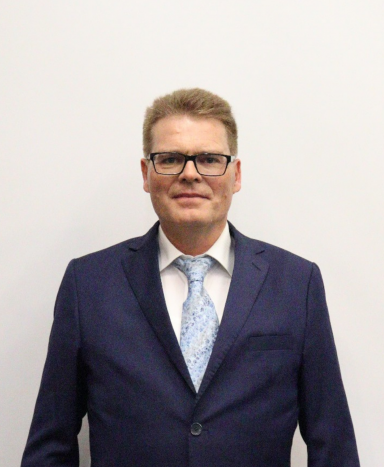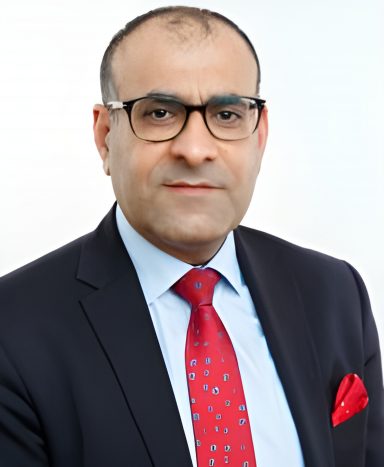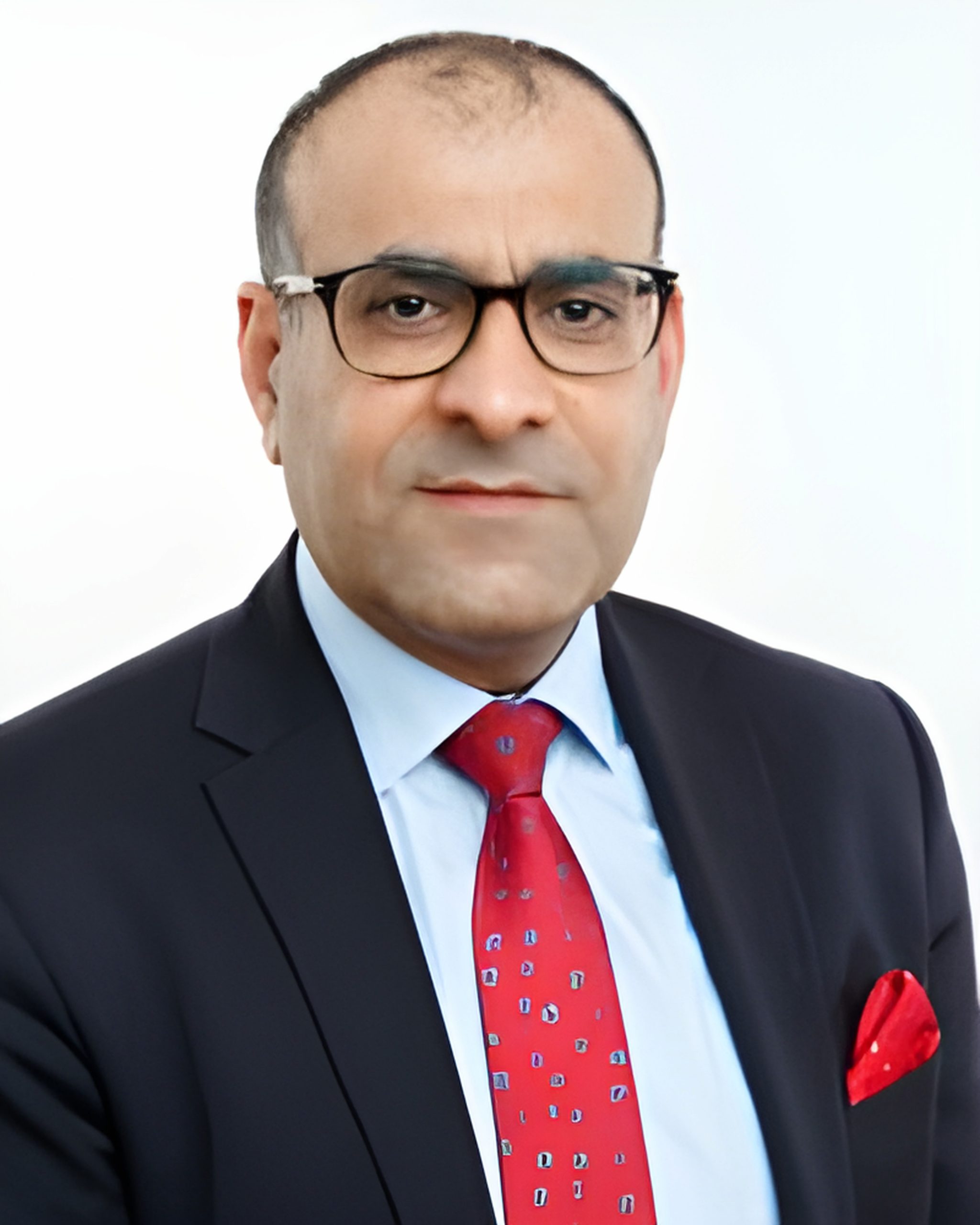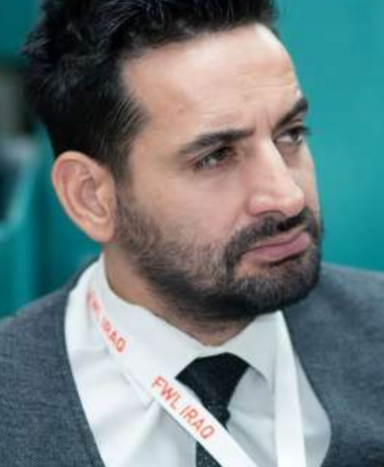ICABEP TIU
The Future is Here

The 7th International Conference on Accounting,
Business, Economics and Politics (ICABEP 2025)
حه وته مين کۆنفرانسی نێودەوڵەتی ژمێریاری، کارگێری، ئابوری و ڕامیاری
المؤتمر الدولي السابع للمحاسبة والأعمال والاقتصاد والسياسة
Organized by

General Theme: Navigating Innovative Strategies to Tackle Contemporary Challenges.
Conference Mode: Hybrid
Sub-themes:
- The Future of Employability in the 21st Century.
- Health and Wellbeing at the Workplace
- Entrepreneurship for Peace-Building and Social Inclusion
- 21st-Century Geopolitical Challenges of the Middle East
- Contemporary Global Affairs.
- Digital Transformation and Sustainable Practices in Finance and Banking
- Leadership 5.0, Industrial Revolution 5.0, Marketing 5.0 And 6.0.
- Sustainability and Green Innovation in Industries.
- Innovative Solutions to Promote Sustainable Accounting and Reporting Practices.
- Digital Ethics, Privacy and Governance.
- Policy and Political Leadership in the Age of AI.
- Business Law Regulations and Ethics in the Digital Age
- AI Opportunities and Risks for Businesses.
- Trends of the Gig Economy in the Context of the Kurdistan Region of Iraq.
- Opportunities and Challenges in Tourism, Agriculture, and Investment in the Kurdistan Region of
Iraq.
Conference Tracks:
- Information Technology and
- Business
- Sustainability and Green Business
- AI and Business
- Design Science Research
- Business Strategy and Innovation
- Accounting, Banking and Finance
- Human Resources Management
- Marketing
- Supply Chain Management and Operations
- Corporate Governance and Ethics
- Tourism, Hospitality and Event Management
- Entrepreneurship and Start-Ups
- Economics
- Political Science and International Relations
Keynote Speakers

Keynote Speech Title: Real Options and Valuation in Natural Resource Industries.
Thomas Burkhardt, German, full professor, graduated in physics (Diplom 1990) and economics (Diplom 1992). Doctoral degree 1994 summa cum laude, all from Göttingen University. Habilitation 2000 Technical University of Freiberg. Since 2001 he holds the chair of finance at Koblenz- University, Germany. Further call to chair in Banking at Innsbruck University, Austria, declined. Primary research interests are financial decision making, asset management, derivatives, and long term investment decisions, including forest investments. Preferred methods include mathematical modeling and optimization as well as economic experiments.
Habilitation in business administration and economics. Served as Head of Institute of Management, as Director of Examination Board, and Erasmus coordinator of international relations. Regular reviewer of various journals, and member of the program committee/scientific board of several regular scientific conferences.
Around 60 publications in the areas of finance, business administration and informatics, forest economics and physics. Numerous conference contributions. Co-editor of book series “Neue Betriebswirtschaftliche Studienbücher“, Berliner Wissenschaftsverlag.
Regular expert on accreditation boards for several German, among them FIBAA, and Kazakh accreditation agencies.

Keynote Speech Title: Real Options and Valuation in Natural Resource Industries.
Thomas Burkhardt, German, full professor, graduated in physics (Diplom 1990) and economics (Diplom 1992). Doctoral degree 1994 summa cum laude, all from Göttingen University. Habilitation 2000 Technical University of Freiberg. Since 2001 he holds the chair of finance at Koblenz- University, Germany. Further call to chair in Banking at Innsbruck University, Austria, declined. Primary research interests are financial decision making, asset management, derivatives, and long term investment decisions, including forest investments. Preferred methods include mathematical modeling and optimization as well as economic experiments.
Habilitation in business administration and economics. Served as Head of Institute of Management, as Director of Examination Board, and Erasmus coordinator of international relations. Regular reviewer of various journals, and member of the program committee/scientific board of several regular scientific conferences.
Around 60 publications in the areas of finance, business administration and informatics, forest economics and physics. Numerous conference contributions. Co-editor of book series “Neue Betriebswirtschaftliche Studienbücher“, Berliner Wissenschaftsverlag.
Regular expert on accreditation boards for several German, among them FIBAA, and Kazakh accreditation agencies.

Keynote Speech Title: Multi-Criteria Evaluation of Large Language Models in Tax Law: Validating the 'LLM as Judge' Concept
Professor at the University of Szczecin, Head of the Department of Decision Support Methods and Cognitive Neuroscience, Director of the Institute of Management, University of Szczecin, Director of the Center for Transfer and Technology at the University of Szczecin, and the President of the Center for Research and Development for the University of Szczecin. My research interests are primarily shaped by issues surrounding the application of quantitative methods and IT tools in the analysis of socio-economic processes, with particular emphasis on multi-criteria methods, multidimensional data analysis, cognitive neuroscience techniques in the study of social behavior, and consumer preferences modelling in the business decision-making process in management. A key component of my research is the development of tools, techniques, and research methods in the domain of cognitive neuroscience. I carry them out within the framework of the Cognitive Neuroscience Laboratory and the Virtual Reality Laboratory, both of which are housed in the Institute of Management at the University of Szczecin. The research focuses on topics related to decision-making, including neuromarketing, analysis of advertising messages, packaging, and banners, as well as website usability testing and logistics processes. To study social behavior and modeling of consumer preferences in decision-making, the research employs measurement techniques such as neuroimaging of the brain (EEG), psychophysiological measurements (GSR, HR), recording and analysis of location and eye movement data (Eye Tracking), and microexpression measurements ( EMG, Face Reading). Additionally, Prof. Nermend has published more than 130 publications (including many monographs published in SPRINGER and articles in journals from the Philadelphia list), mainly in the area of using quantitative methods and tools to analyze economic problems and decision support.

Keynote Speech Title: Multi-Criteria Evaluation of Large Language Models in Tax Law: Validating the 'LLM as Judge' Concept
Professor at the University of Szczecin, Head of the Department of Decision Support Methods and Cognitive Neuroscience, Director of the Institute of Management, University of Szczecin, Director of the Center for Transfer and Technology at the University of Szczecin, and the President of the Center for Research and Development for the University of Szczecin. My research interests are primarily shaped by issues surrounding the application of quantitative methods and IT tools in the analysis of socio-economic processes, with particular emphasis on multi-criteria methods, multidimensional data analysis, cognitive neuroscience techniques in the study of social behavior, and consumer preferences modelling in the business decision-making process in management. A key component of my research is the development of tools, techniques, and research methods in the domain of cognitive neuroscience. I carry them out within the framework of the Cognitive Neuroscience Laboratory and the Virtual Reality Laboratory, both of which are housed in the Institute of Management at the University of Szczecin. The research focuses on topics related to decision-making, including neuromarketing, analysis of advertising messages, packaging, and banners, as well as website usability testing and logistics processes. To study social behavior and modeling of consumer preferences in decision-making, the research employs measurement techniques such as neuroimaging of the brain (EEG), psychophysiological measurements (GSR, HR), recording and analysis of location and eye movement data (Eye Tracking), and microexpression measurements ( EMG, Face Reading). Additionally, Prof. Nermend has published more than 130 publications (including many monographs published in SPRINGER and articles in journals from the Philadelphia list), mainly in the area of using quantitative methods and tools to analyze economic problems and decision support.

Keynote Speach Title: Starting from Erbil: Toward a Pilot Project for the Labor Market in Iraqi Kurdistan.
Dr. Andrea Imperia earned his degree in Economics from the University of Rome "La Sapienza," where he later completed his Ph.D. in Political Economy. His academic background laid the groundwork for a career focused on classical and heterodox economic theories, with particular attention to capital theory, labor markets, and the history of economic thought.
In the early stages of his career, Dr. Imperia’s research explored the theoretical contributions of economists such as Gustav Cassel and Léon Walras, emphasizing critiques of general equilibrium and neoclassical capital theory. His work brought renewed attention to classical perspectives within modern economic debates.
Throughout the 2010s, Dr. Imperia contributed to policy discussions in Italy and beyond, including critical analyses of labor reforms and employment policies. His publications in academic journals such as Journal of the History of Economic Thought and Studi Economici addressed the complexities of labor precarity, wage dynamics, and macroeconomic instability from a Keynesian and Sraffian perspective.
Currently serving as an Assistant Professor of Political Economy at the University of Rome "La Sapienza," Dr. Imperia continues to publish scholarly articles and engage in research on economic crises, Latin American economies, and financial instability. His academic efforts are marked by a strong commitment to advancing alternative economic models that prioritize social welfare and theoretical rigor.

Keynote Speach Title: Starting from Erbil: Toward a Pilot Project for the Labor Market in Iraqi Kurdistan.
Dr. Andrea Imperia earned his degree in Economics from the University of Rome "La Sapienza," where he later completed his Ph.D. in Political Economy. His academic background laid the groundwork for a career focused on classical and heterodox economic theories, with particular attention to capital theory, labor markets, and the history of economic thought.
In the early stages of his career, Dr. Imperia’s research explored the theoretical contributions of economists such as Gustav Cassel and Léon Walras, emphasizing critiques of general equilibrium and neoclassical capital theory. His work brought renewed attention to classical perspectives within modern economic debates.
Throughout the 2010s, Dr. Imperia contributed to policy discussions in Italy and beyond, including critical analyses of labor reforms and employment policies. His publications in academic journals such as Journal of the History of Economic Thought and Studi Economici addressed the complexities of labor precarity, wage dynamics, and macroeconomic instability from a Keynesian and Sraffian perspective.
Currently serving as an Assistant Professor of Political Economy at the University of Rome "La Sapienza," Dr. Imperia continues to publish scholarly articles and engage in research on economic crises, Latin American economies, and financial instability. His academic efforts are marked by a strong commitment to advancing alternative economic models that prioritize social welfare and theoretical rigor.

Keynote Speech Title:
"Three Zero Theory" of Prof. Muhammad Yunus and its Implications for a sustainable World: A multi-Study Approach.
Prof. Taimur Sharif has a profound career of working for a diverse range of universities in the UK, the MENA region, and South Asia for over 25 years. He is currently the Professor and Dean, College of Business, The American University of Kurdistan (AUK), Duhok Governorate, Kurdistan Region of Iraq (KRI). Taimur is also a Distinguished Professor at Woxsen University, India. He is the first and the only Business and Management School academic in the KRI and Iraq at large to receive the highly prestigious Principal Fellow (PFHEA) award of Advance HE (formerly, Higher Education Academy), UK. He is also recipients of the Chartered Manager (FCMI CMgr., C.Mgr.) status from the Chartered Management Institute (UK) and the Chartered Institute of Management (Canada), and “Recognised Teacher Status” from Cranfield University (UK). He is currently an External Examiner at the University of East London (UK), Leeds Beckett University (UK), and MAHSA University (Malaysia).

Keynote Speech Title:
"Three Zero Theory" of Prof. Muhammad Yunus and its Implications for a sustainable World: A multi-Study Approach.
Prof. Taimur Sharif has a profound career of working for a diverse range of universities in the UK, the MENA region, and South Asia for over 25 years. He is currently the Professor and Dean, College of Business, The American University of Kurdistan (AUK), Duhok Governorate, Kurdistan Region of Iraq (KRI). Taimur is also a Distinguished Professor at Woxsen University, India. He is the first and the only Business and Management School academic in the KRI and Iraq at large to receive the highly prestigious Principal Fellow (PFHEA) award of Advance HE (formerly, Higher Education Academy), UK. He is also recipients of the Chartered Manager (FCMI CMgr., C.Mgr.) status from the Chartered Management Institute (UK) and the Chartered Institute of Management (Canada), and “Recognised Teacher Status” from Cranfield University (UK). He is currently an External Examiner at the University of East London (UK), Leeds Beckett University (UK), and MAHSA University (Malaysia).

Keynote Speech Title: Gated Communities in Kurdistan: Business, Economic, and Social Implications of a Growing Trend.
Ahmet Demir is an Associate Professor of Operations Management with extensive expertise in strategic planning, quality management, and urban development studies. With a career spanning over two decades in academia and consultancy, he has led numerous research and advisory projects in the fields of real estate development, supply chain resilience, and organizational transformation.
His recent work focuses on the intersection of management science and regional urbanization, particularly in the context of high-growth sectors such as gated communities. As a regular speaker at international conferences and a mentor to early-career researchers, Prof. Ahmet is dedicated to bridging the gap between theoretical insights and practical impact, especially in emerging economies such as the Kurdistan Region.

Keynote Speech Title: Gated Communities in Kurdistan: Business, Economic, and Social Implications of a Growing Trend.
Ahmet Demir is an Associate Professor of Operations Management with extensive expertise in strategic planning, quality management, and urban development studies. With a career spanning over two decades in academia and consultancy, he has led numerous research and advisory projects in the fields of real estate development, supply chain resilience, and organizational transformation.
His recent work focuses on the intersection of management science and regional urbanization, particularly in the context of high-growth sectors such as gated communities. As a regular speaker at international conferences and a mentor to early-career researchers, Prof. Ahmet is dedicated to bridging the gap between theoretical insights and practical impact, especially in emerging economies such as the Kurdistan Region.
Important Dates & Fee
IMPORTANT DATES
Abstract Submission: 30th June 2025.
Abstract Acceptance Notification: 5th of July 2025
Full Paper Submission Date: 20th of August 2025
Full Paper Acceptance Notification: 30 days from the date of submission
Conference Date: 29th-30th October 2025
![]() ONLINE PRESENTATION
ONLINE PRESENTATION
Online paper presentation option is also available:
All participants must be prepared according to the given criteria. Please upload only in ppt format. Slides are 12 minutes presentation plus 3 minutes questions.
Deadline to submit slides in ppt format is :
Oct 15th, 2025.
EARLY REGISTRATION
National participants (authors): $80
International participants (authors): $100
LATE REGISTRATION
National participants (authors): $95
International participants (authors): $120
Publication Opportunities:
Other Conference Benefits:
Contact Us
Explore our past events and enjoy!
Contact Details
- Phone+964 750 711 7006 +964 750 826 5602
- Emailicabep@tiu.edu.iq
- Address100 Meters Street, Erbil, Kurdistan Region of Iraq